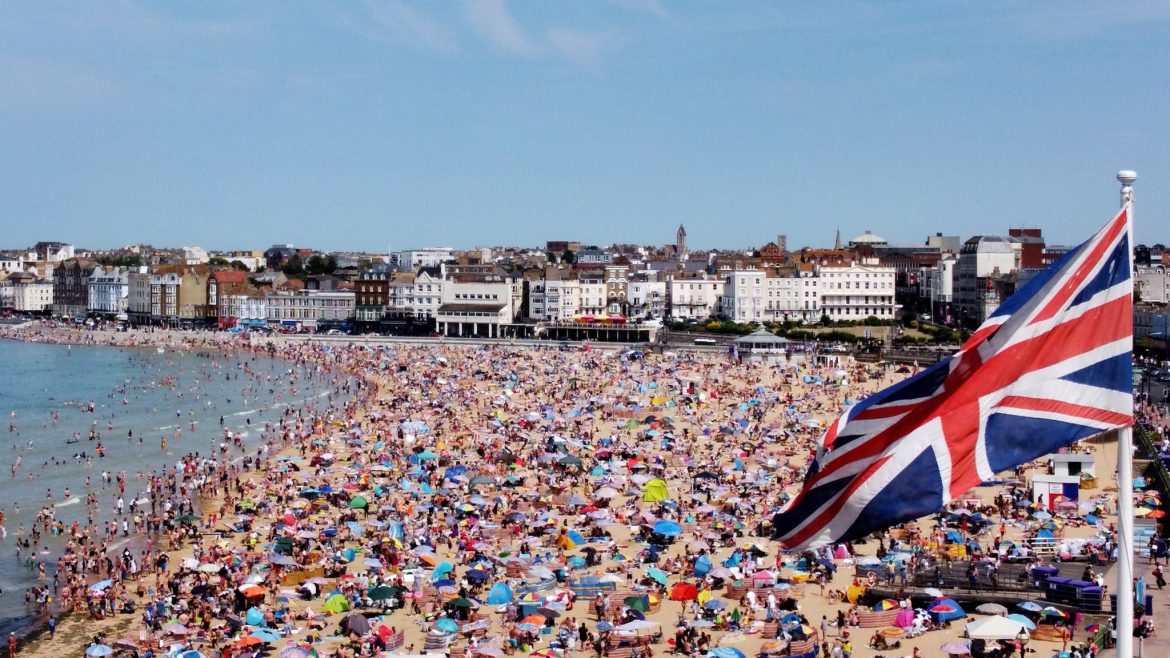The Met Office has confirmed that 2022 was the warmest year on record in the UK, with experts warning the unprecedented heat is a sign of things to come.
According to the office, 2022 was also the first year in which a temperature above 40C (104F) was recorded in the UK, with a record-breaking 40.3C reported to have been recorded on 19 July at Coningsby, Lincolnshire.
Prof Liz Bentley, the chief executive of the Royal Meteorological Society, who oversees the journal that published the annual report, said: “I’ve never seen 40C in the UK before … to break that record I think was a real milestone.
“This was probably the first time we saw a hot, dry summer for a while. If you look at future climate projections, we are on a path [towards] hotter, drier summers. So 2022 was very much a sign of things to come.”
A host of other records were set last year, the office said. It was warmer than average throughout 2022, except for December, which was the coldest since 2010. Despite this, all four seasons were in the top 10 hottest since records began in 1884. The past decade, from 2013-22, was also the UK’s warmest.
Read also: Labor push for publicly owned plantations to end forest logging
According to reports, Met Office studies also found the record heat and the heatwave last July, when the organisation issued its first red warning for extreme temperatures, were made more likely because of human-induced climate breakdown.
Mike Kendon, who is the lead author of the report, said: “The observations show that extreme temperatures are changing faster than the average and, as our climate warms, we expect far more high temperature records to be broken, potentially by wide margins, and far fewer low temperature records.”
Also, the report found that the sea level in the UK had risen by 18.5cm since the 1900s, with about 11.4cm of this rise having taken place over the past 30 years. A newer section is on phenology, the study of recurring biological or natural events in relation to climate. This refers to events such as leaves staying on trees longer or flowers blooming earlier.
Story was adapted from the Guardian.
